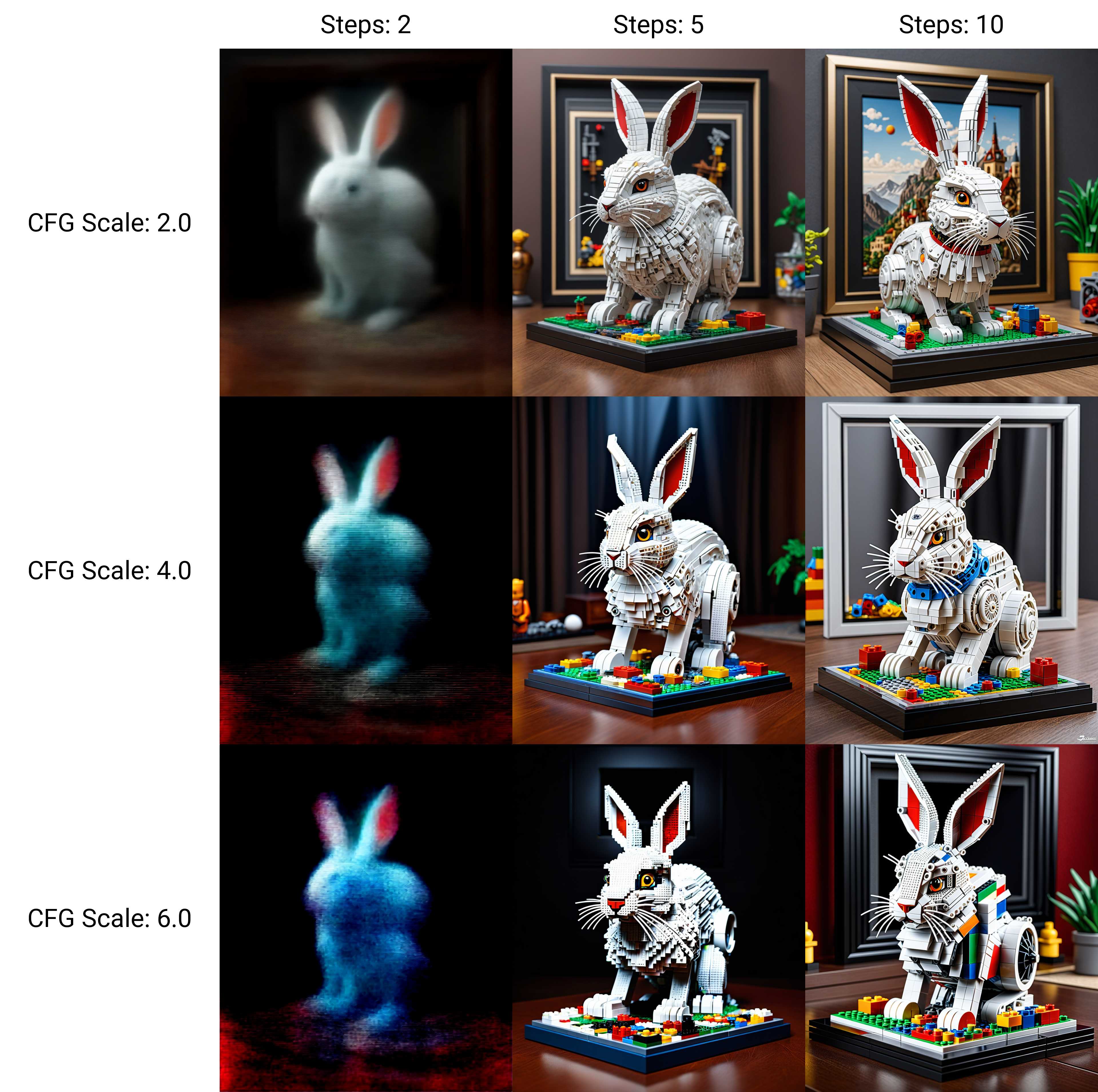metadata
license: creativeml-openrail-m
library_name: diffusers
pipeline_tag: text-to-image
base_model: stabilityai/stable-diffusion-xl-base-1.0
tags:
- safetensors
- stable-diffusion
- sdxl
- flash
- sdxl-flash
- lightning
- turbo
- lcm
- hyper
- fast
- fast-sdxl
- sd-community
inference:
parameters:
num_inference_steps: 7
guidance_scale: 3
negative_prompt: >-
(deformed, distorted, disfigured:1.3), poorly drawn, bad anatomy, wrong
anatomy, extra limb, missing limb, floating limbs, (mutated hands and
fingers:1.4), disconnected limbs, mutation, mutated, ugly, disgusting,
blurry, amputation
SDXL Flash in collaboration with Project Fluently
Introducing the new fast model SDXL Flash, we learned that all fast XL models work fast, but the quality decreases, and we also made a fast model, but it is not as fast as LCM, Turbo, Lightning and Hyper, but the quality is higher. Below you will see the study with steps and cfg.
Steps and CFG (Guidance)
Optimal settings
- Steps: 6-9
- CFG Scale: 2.5-3.5
- Sampler: DPM++ SDE
Diffusers usage
pip install torch diffusers
import torch
from diffusers import StableDiffusionXLPipeline, DPMSolverSinglestepScheduler
# Load model.
pipe = StableDiffusionXLPipeline.from_pretrained("sd-community/sdxl-flash", torch_dtype=torch.float16, variant="fp16").to("cuda")
# Ensure sampler uses "trailing" timesteps.
pipe.scheduler = DPMSolverSinglestepScheduler.from_config(pipe.scheduler.config, timestep_spacing="trailing")
# Image generation.
pipe("a happy dog, sunny day, realism", num_inference_steps=7, guidance_scale=3).images[0].save("output.png")

